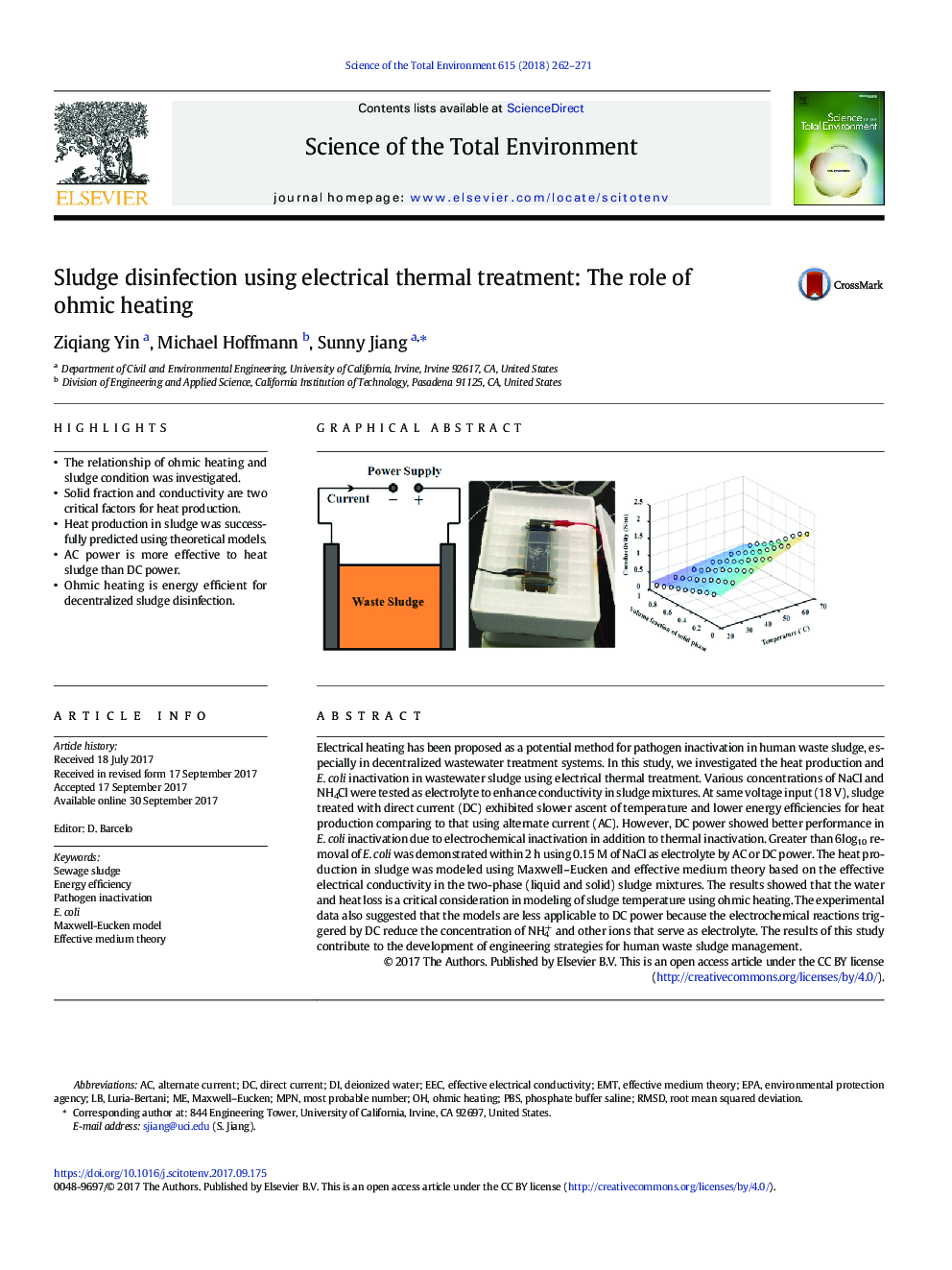| کد مقاله | کد نشریه | سال انتشار | مقاله انگلیسی | نسخه تمام متن |
|---|---|---|---|---|
| 5749780 | 1619689 | 2018 | 10 صفحه PDF | دانلود رایگان |
- The relationship of ohmic heating and sludge condition was investigated.
- Solid fraction and conductivity are two critical factors for heat production.
- Heat production in sludge was successfully predicted using theoretical models.
- AC power is more effective to heat sludge than DC power.
- Ohmic heating is energy efficient for decentralized sludge disinfection.
Electrical heating has been proposed as a potential method for pathogen inactivation in human waste sludge, especially in decentralized wastewater treatment systems. In this study, we investigated the heat production and E. coli inactivation in wastewater sludge using electrical thermal treatment. Various concentrations of NaCl and NH4Cl were tested as electrolyte to enhance conductivity in sludge mixtures. At same voltage input (18Â V), sludge treated with direct current (DC) exhibited slower ascent of temperature and lower energy efficiencies for heat production comparing to that using alternate current (AC). However, DC power showed better performance in E. coli inactivation due to electrochemical inactivation in addition to thermal inactivation. Greater than 6log10 removal of E. coli was demonstrated within 2Â h using 0.15Â M of NaCl as electrolyte by AC or DC power. The heat production in sludge was modeled using Maxwell-Eucken and effective medium theory based on the effective electrical conductivity in the two-phase (liquid and solid) sludge mixtures. The results showed that the water and heat loss is a critical consideration in modeling of sludge temperature using ohmic heating. The experimental data also suggested that the models are less applicable to DC power because the electrochemical reactions triggered by DC reduce the concentration of NH4+ and other ions that serve as electrolyte. The results of this study contribute to the development of engineering strategies for human waste sludge management.
205
Journal: Science of The Total Environment - Volume 615, 15 February 2018, Pages 262-271
